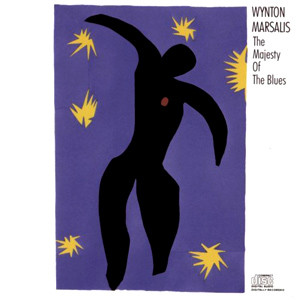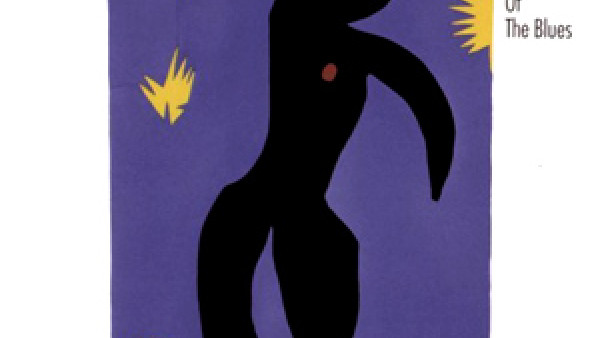Marsalis adds blues to his music
Dressed casually in a T-shirt and sweats, trumpeter Wynton Marsalis opened the door to his Seattle hotel room during a recent stop on a concert tour that brings him to Detroit’s Orchestra Hall tonight. He wore a tired smile. The band’s bus had broken down on the way to Seattle, and he had just gotten up. He looked exhausted but happy, an all-American musician weary from touring but pleased to be doing what he loves.
“Music is my hobby,” he said, flopping on a couch amid five notebooks filled with new compositions. Can this be the same man portrayed in the jazz press as a narrow-minded orator who thinks anything past the be-bop of the ’60s is degenerate? Is this the player who supposedly is so committed to tradition that his playing is frigid with technique?
He chuckled at the mention of his reputation. “I’m glad they say those things; it’s their right. But it’s also my right to say what I feel,” he said. “I’ve been out here since 1982, and you can’t stay out here just on technique. This criticism is an attempt to devalue the intellectual aspect of our music.”
Devaluing Marsalis’ music is a pretty difficult to do. All of his classical discs (on CBS Master-works) have earned a spot in the Top 5 on Billboard’s charts, and he played with the New Orleans Civic Orchestra as a teenager before joining Art Blakey and the Jazz Messengers and the Herbie Hancock Quartet.
He has won eight Grammys since he began leading his own group and recording at age 19, and he’s the only artist ever to have won five jazz Grammys in a row. In 1984, Marsalis achieved the remarkable feat of winning Grammys for both jazz and classical records – a unique accomplishment.
Now, as if to pay tribute to his earliest influences, the trumpeter has made the music of New Orleans , the centerpiece of his newest album, “The Majesty of the Blues.”
“Blues is the heart of American music,” Marsalis said, sitting down at the piano and doodling out a umber of variations on that theme. The new album is steeped in the traditions of Jelly Roll Morton, Duke Ellington and Louis Armstrong. From blues to a parade march, a dirge, a gospel sermon and Dixieland music, Marsalis pays great tribute to the black culture of New Orleans.
But rather than restrict himself to the roots groove, Marsalis explodes on “The Majesty of the Blues,” incorporating classical phrases and Thelonious Monk moods in gutbucket motifs. It is infused with an array of emotions – passion, pomposity, pain and childish glee – all arising from the blues.
What I care about is music that has. spiritual content,” said Marsalis, who turns 28 next month. “Bach is spiritual, and so is Louis Armstrong. I believe that there is a spiritual core at the heart of all music of significance.
“Music, you know, is a journey, and a record or a concert just shows where you are in a certain space and time.” ‘Marsalis’ journey began at home. His father, Ellis Marsalis, is a distinguished pianist who heads jazz studies at the University of New Orleans. His older brother Branford is a noted sax player; brother Delfeayo plays trombone and produces jazz records, and the youngest brother, Jason, plays drums.
At age 8 Marsalis was playing in banjo player Danny Barker’s youth band. He left home at 17 to study classical trumpet at the Juilliard School in New York. When he was younger, he said, “I disliked classical music, and I suppose it was because I hadn’t heard enough of it. Also, it was because of all the social things that were attached to the classics, which really have nothing to do with Beethoven or Bach.
“So I didn’t come to classical music with an open mind. But everything changed when I was a teenager and listened to a recording by Maurice André (the grand old man of the classical trumpet). All of a sudden, all my prejudices faded away.”
Off he went to Juilliard, only to drop out after the second semester. “I was totally alone and isolated there. Nobody was like me I still wore an Afro, I was from New Orleans, my whole philosophy about music was different from everybody’s else’s.”
So Marsalis quit, struck up a friendship with jazz musician Blakey and realized “that was it I was going to play jazz.” Or so he thought, until 1982, when he got a hankering to start recording classical music. And when the world’s best orchestras began offering solo dates, how could he say no? “That’s when I truly realized what the classical life is all about,” said Marsalis.
“When you’re in jazz, you’re constantly struggling with everything that the great jazz artists have said and done in music. You’re constantly trying to learn from them, and make some kind of voice for yourself. But in classical music, you’re solo, you’re on your own.”
Perhaps, in the end, Marsalis never will fully lean in the direction of jazz or classical. As Marsalis said, “All that matters, is that you just keep developing along the way.”
by Roberta Penn
Source: Detroit Free Press
(Howard Reich of the Chicago Tribune, and Knight Ridder wire service contributed to this report)


